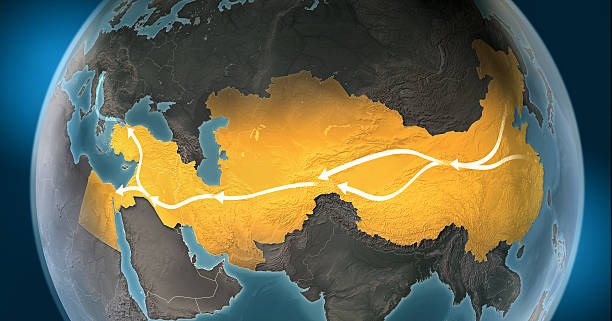
In recent developments regarding the war between Hamas and Palestine in Gaza, the international community has gathered a number of times in order to discuss a ceasefire agreement for humanitarian causes in order to protect the many civilians whose lives are still at stake in the region.
The world is watching and hoping that many lives can be saved from this horrific conflict, and many have taken on a more active role in meddling in the conflict. Some to make it stop, some to make it continue until there’s a winner. A third-party agent that’s involved in the conflict is the United States, whose explicit support of Israel’s claims has led to the ultimate advantage for the country in the region, which has been restlessly attacking Gaza, well beyond what their claims of self-defense would allow them to.
On top of third-party states that have expressed their opinion about the conflict, the states that are geographically tied to Gaza and Israel are also looking for other countries to ask them for aid to impose a ceasefire. And not surprisingly, some of the Middle Eastern leaders joined a meeting in Beijing to ask for China to exert its international influence over the international community and call for a ceasefire.
This is quite interesting because the alignment of Middle Eastern interests with China is establishing important international recognition for China’s power in the global order. Of course, China is an undeniable force in that landscape, but the limitations of their influence are worrisome to specific western countries, such as the US, which might see in practice a diminishing of its own influence over the globe.
This is an important step forward toward the end of the extreme US hegemony that has been tantalizing the international community for decades. The recognition from the Middle East that China might be a better nation to ask for help than the US is extremely validated when we stop to think about what these countries can offer China in return for them representing their interests.
In recent times, we have been seeing investment growth from China in the Middle East. In 2020, China will replace the European Union as the GCC’s largest trading partner. On top of this, it also became Saudi Arabia’s and the UAE’s biggest non-oil trading partner. It is clear how the diplomatic relationship between China and the region is not only growing larger but also stronger, marking an important step in the international order.
The expansion of some specific infrastructure projects in China and the Asian region has found an important trading partner in the Middle East. The Belt and Road Initiative is a great example of a project that led to a large amount of investment in the Middle East, since it is a project that demanded a vital ally, especially due to China’s need for and dependency on energy imports.
Infrastructure development isn’t the only area that brought the two together. It is in Beijing’s plan to also expand on their digital influence in the region, leading them to secure 5G deals in the Middle East region, allowing China to expand on their role as a technological superpower. This agreement is mutually beneficial, as China expands on their digital influence plans and the Middle East becomes more digitalized and on par with modern technology, which might set them back when compared to more developed regions.
On top of this, as we have already seen, diplomatic agreements have also taken place between China and Middle Eastern countries. It became clear to the region that their interests might be better met by China and that a diplomatic expansion on the east might be just as, if not more, beneficial than with the West.
While for China, it’s great to have a transparent and cooperative relationship with the Middle East, as China is highly interested in the amount of oil present in the region, for the Middle East, China represents a force committed to non-interference in the region and who safeguards common interests internationally. This serves as an important aspect of establishing peace in the international community and expands on China’s mediation efforts in the region.
And to finalize the analysis, we must, of course, talk about the consequences for the established power of the US. As competition grows, the US finds itself in a tough position, as the only possible solution to maintaining its power is to be aware that sharing the spotlight can be extremely beneficial. Recently, the meeting between the leaders of the US and China represented an important step towards diplomacy and peace. Competition shouldn’t bring animosity, but yes, cooperation.
In conclusion, the Gaza conflict has brought an important highlight to China’s influence in the international community, as its peaceful presence is exemplifying an important aspect of imposing peace. We can see both China’s and Middle Eastern interests in this diplomatic relationship, but China’s influence internationally is seen to have grown stronger with their economic and diplomatic agreements, on top of strategic partnerships that have been established over the last few years, allowing for a new era of the global order.
By The European Institute for International Law and International Relations.
REFERENCES















